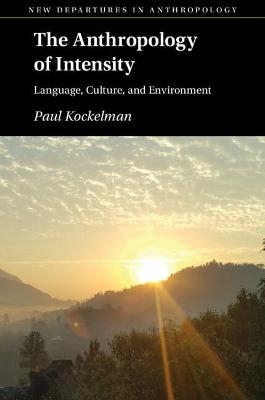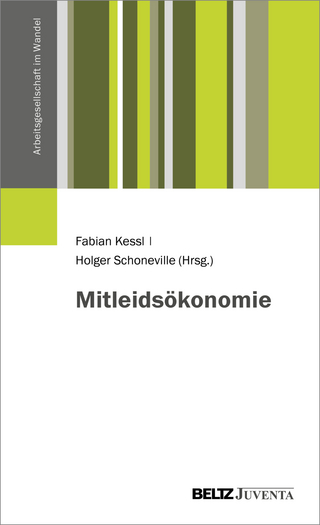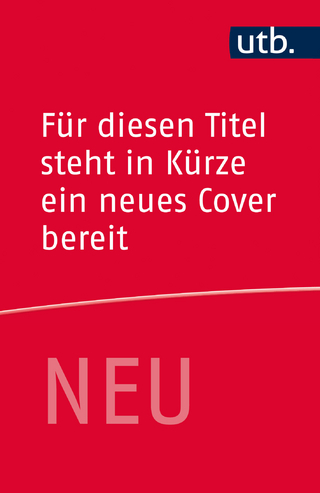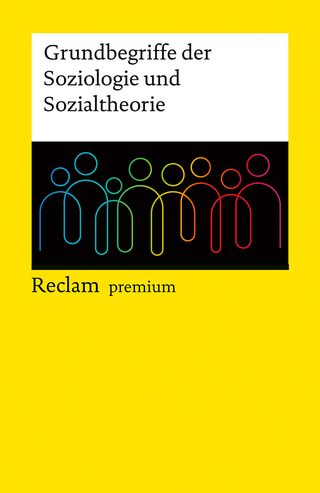
The Anthropology of Intensity
Language, Culture, and Environment
Seiten
2022
Cambridge University Press (Verlag)
978-1-009-01107-5 (ISBN)
Cambridge University Press (Verlag)
978-1-009-01107-5 (ISBN)
Focusing on the last twenty years of life in a small Mayan village, this pioneering book offers a natural history of intensity in the age of the Anthropocene. It is designed to bring together not only anthropologists and linguists, but also ecologically oriented readers, critical theorists, and environmental scientists.
What counts as too close for comfort? How can an entire room suddenly feel restless at the imminence of a yet unknown occurrence? And who decides whether or not we are already in an age of unliveable extremes? The anthropology of intensity studies how humans encounter and communicate the continuous and gradable features of social and environmental phenomena in everyday interactions. Focusing on the last twenty years of life in a Mayan village in the cloud forests of Guatemala, this book provides a natural history of intensity in exceedingly tense times, through a careful analysis of ethnographic and linguistic evidence. It uses intensity as a way to reframe Anthropology in the age of the Anthropocene, and rethinks classic work in the formal linguistic tradition from a culture-specific and context-sensitive stance. It is essential reading not only for anthropologists and linguists, but also for ecologically oriented readers, critical theorists, and environmental scientists.
What counts as too close for comfort? How can an entire room suddenly feel restless at the imminence of a yet unknown occurrence? And who decides whether or not we are already in an age of unliveable extremes? The anthropology of intensity studies how humans encounter and communicate the continuous and gradable features of social and environmental phenomena in everyday interactions. Focusing on the last twenty years of life in a Mayan village in the cloud forests of Guatemala, this book provides a natural history of intensity in exceedingly tense times, through a careful analysis of ethnographic and linguistic evidence. It uses intensity as a way to reframe Anthropology in the age of the Anthropocene, and rethinks classic work in the formal linguistic tradition from a culture-specific and context-sensitive stance. It is essential reading not only for anthropologists and linguists, but also for ecologically oriented readers, critical theorists, and environmental scientists.
Paul Kockelman is Professor of Anthropology at Yale University. His books include Kinds of Value: An Experiment in Modal Anthropology (Prickly Paradigm Press) and The Art of Interpretation in the Age of Computation (Oxford University Press).
Introduction; Part I. Grounds: 1. Comparative grounds; 2. Casual grounds; 3. Grounding experience: Grounding the anthropocene; Part II. Tensors: 5. Intensifiers; 6. The history of Mas; The comparative complex; 8. More, also, only; Part III. Thresholds: 9. Temporality and replacement; 10. Temporal thresholds; 11. Modality and worlding; 12. Modal thoughts; Conclusion: the ecological self.
| Erscheinungsdatum | 11.05.2022 |
|---|---|
| Reihe/Serie | New Departures in Anthropology |
| Zusatzinfo | Worked examples or Exercises |
| Verlagsort | Cambridge |
| Sprache | englisch |
| Maße | 151 x 228 mm |
| Gewicht | 590 g |
| Themenwelt | Sozialwissenschaften ► Ethnologie |
| Sozialwissenschaften ► Soziologie ► Allgemeines / Lexika | |
| ISBN-10 | 1-009-01107-3 / 1009011073 |
| ISBN-13 | 978-1-009-01107-5 / 9781009011075 |
| Zustand | Neuware |
| Haben Sie eine Frage zum Produkt? |
Mehr entdecken
aus dem Bereich
aus dem Bereich
Buch | Softcover (2024)
Phillip Reclam (Verlag)
12,80 €


